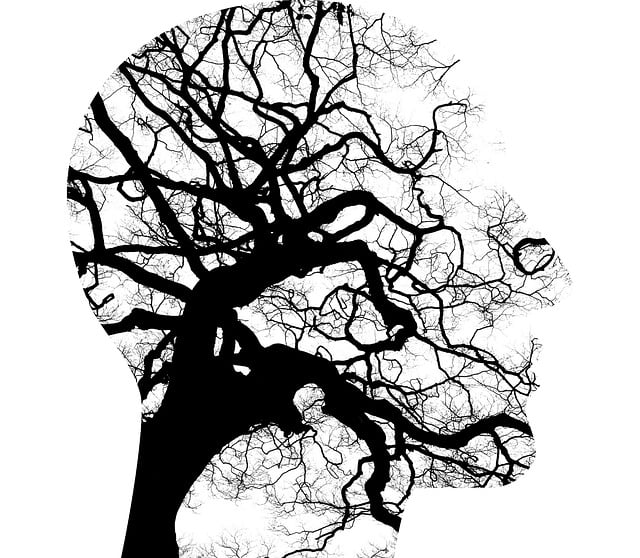Emotional intelligence is vital for elderly well-being, addressing age-related challenges like isolation and health changes that can lead to depression. Therapy for elders combined with family counseling serves as a powerful tool, enhancing emotional intelligence through communication strategies that strengthen family bonds. These methods improve risk assessment, enable proactive mental health management, and ultimately maintain and improve senior well-being. By focusing on emotional awareness, coping skills development, and empathy building, therapy for elders and family counseling sessions empower seniors and their families to navigate life's challenges effectively.
Emotional intelligence (EI) plays a pivotal role in the well-being and connections of elderly individuals. This article explores how understanding and cultivating EI can significantly impact seniors’ lives. We delve into effective strategies, including family counseling as a powerful tool, to enhance emotional awareness and communication skills among elders. By examining the development of empathy, we highlight key components essential for fostering stronger relationships and improving mental health in later years. Discover practical techniques that combine therapy with everyday practices to nurture EI in seniors, ensuring they remain connected and resilient.
- Understanding Emotional Intelligence and Its Impact on Elderly Individuals
- The Role of Family Counseling in Enhancing Emotional Intelligence
- Strategies for Improving Emotional Awareness in Seniors
- Effective Communication Techniques for Better Connection with Elders
- Nurturing Empathy: A Key Component of Emotional Intelligence Development
Understanding Emotional Intelligence and Its Impact on Elderly Individuals

Emotional intelligence—the ability to recognize, understand, and manage one’s own emotions, as well as those of others—is especially significant for elderly individuals. As people age, they often face unique challenges that can impact their mental health, including isolation, loss of loved ones, and changes in physical health. High emotional intelligence can help seniors navigate these difficulties more effectively, fostering resilience against conditions like depression, which is prevalent among the aging population.
Family counseling plays a pivotal role in enhancing emotional intelligence in the elderly. Through therapy sessions, elders can learn valuable communication strategies to express their feelings openly within their families. This improved communication not only strengthens interpersonal bonds but also enables mental health professionals to conduct more accurate risk assessments for depression prevention. By addressing emotional needs proactively, family counseling acts as a powerful tool in maintaining and improving the overall well-being of seniors.
The Role of Family Counseling in Enhancing Emotional Intelligence

Family counseling plays a pivotal role in enhancing emotional intelligence, especially for older adults. This therapeutic approach recognizes that emotions are deeply rooted in our interpersonal relationships, and by fostering healthier dynamics within families, it can significantly improve an individual’s ability to recognize, understand, and manage their own emotions, as well as those of others. Through regular sessions, elders and their family members can develop coping skills and stress management techniques, which are essential components of emotional intelligence.
In the context of mental health policy analysis and advocacy, family counseling can be a powerful tool for promoting well-being. By organizing workshops and groups focused on stress management and emotional understanding, older adults can learn valuable strategies to navigate life’s challenges. These sessions not only strengthen relationships but also empower individuals with the tools to make positive changes in their lives, ultimately contributing to improved mental health outcomes within the community.
Strategies for Improving Emotional Awareness in Seniors

Improving emotional awareness is a vital aspect of overall well-being, especially for seniors. As people age, they may face unique challenges that can impact their emotional health. Therefore, incorporating strategies to enhance emotional awareness becomes essential. One effective approach is through therapy for elders, which offers a safe space for them to explore and understand their emotions. Family counseling can also play a significant role, as it encourages open communication about feelings and experiences among family members, fostering an environment of support.
Additionally, simple yet powerful communication strategies can be taught to seniors to help them express themselves more effectively. This includes active listening techniques and non-verbal cues interpretation, allowing for better understanding and connection with others. Incorporating regular mood management activities, such as meditation or journaling, can also aid in recognizing and regulating emotions. Moreover, focusing on self-esteem improvement through positive reinforcement and setting achievable goals empowers seniors to develop a healthier relationship with their feelings.
Effective Communication Techniques for Better Connection with Elders

Effective communication is a cornerstone of emotional intelligence and can significantly enhance connections between family members and elders. In today’s fast-paced world, where busy schedules often create barriers, taking time to listen attentively and express oneself clearly can foster deeper bonds. Family counseling sessions can serve as a safe space to learn and practice these techniques, ensuring that every voice is heard and understood. Therapists specializing in elder care can guide families on how to navigate conversations about aging, health, and life transitions, promoting open dialogue that strengthens family ties.
Integrating mental wellness practices into daily routines is essential for both elders and their caregivers. Coping skills development enables individuals to manage stress and maintain emotional balance. Encouraging self-care practices such as regular exercise, mindfulness, or engaging in hobbies can enhance overall well-being. By prioritizing open communication and adopting healthy coping mechanisms, families can create a supportive environment that nurtures emotional intelligence and strengthens relationships through the challenges of aging.
Nurturing Empathy: A Key Component of Emotional Intelligence Development

Nurturing empathy is a fundamental aspect of emotional intelligence development, especially in contexts such as therapy for elders and family counseling. Empathy allows individuals to understand and share the feelings of others, fostering deeper connections and supportive environments. Through effective empathy building strategies, professionals can help clients navigate complex emotions, enhance their mental wellness, and improve interpersonal relationships.
In trauma support services, empathy plays a pivotal role in creating safe spaces where individuals feel heard and understood. Encouraging the practice of mental wellness journaling exercises can also be a powerful tool for cultivating empathy. By reflecting on their own experiences and emotions, individuals develop a heightened sense of awareness, enabling them to empathize more profoundly with others. This, in turn, strengthens bonds within families and support systems, fostering an atmosphere of care and understanding.
Emotional intelligence is a powerful tool for enhancing the well-being and quality of life for elderly individuals. By understanding its impact, utilizing family counseling as a supportive strategy, and implementing specific techniques like increased emotional awareness and effective communication, we can foster deeper connections and meaningful interactions with seniors. Nurturing empathy serves as a cornerstone in this development process, ultimately enriching both the lives of the elders and those who care for them. Through these practices, we can ensure that elderly folks feel valued, understood, and supported, promoting a healthier and happier aging experience.














